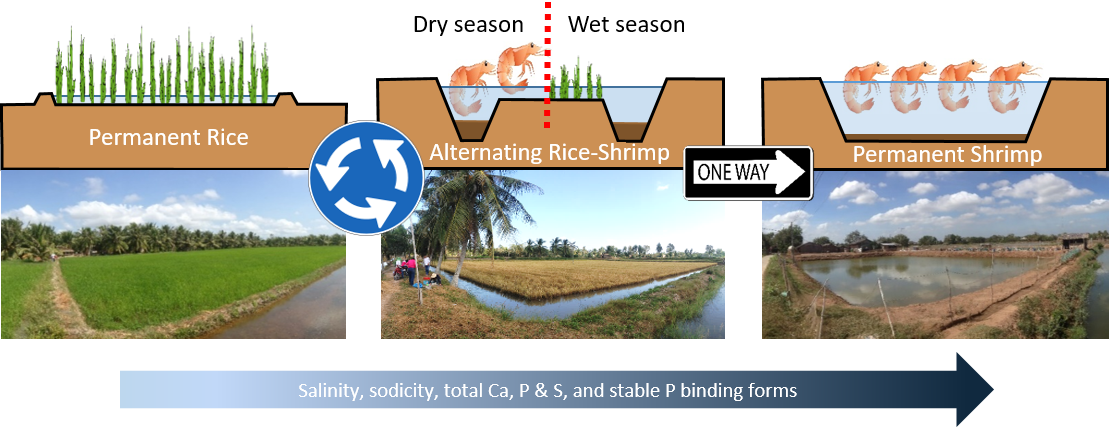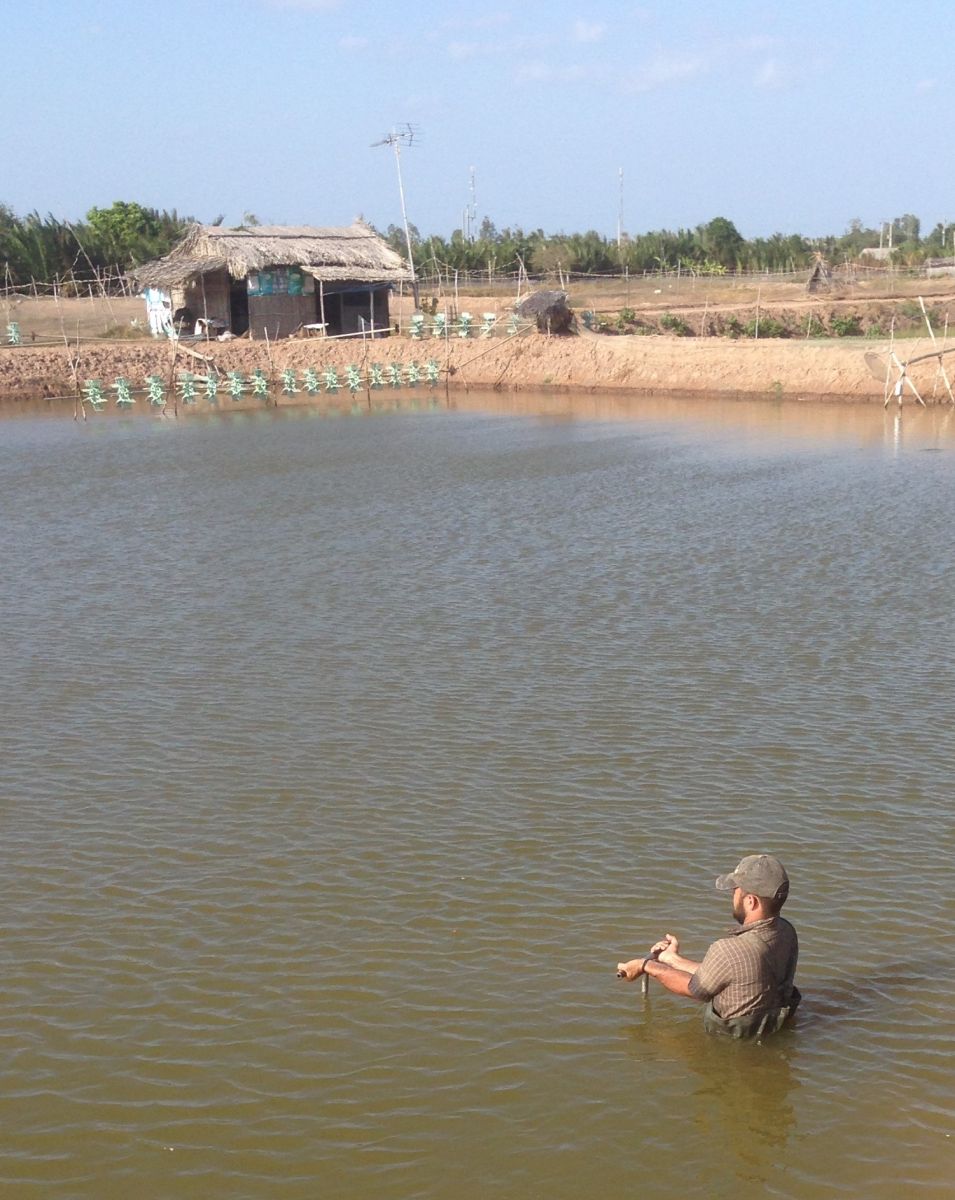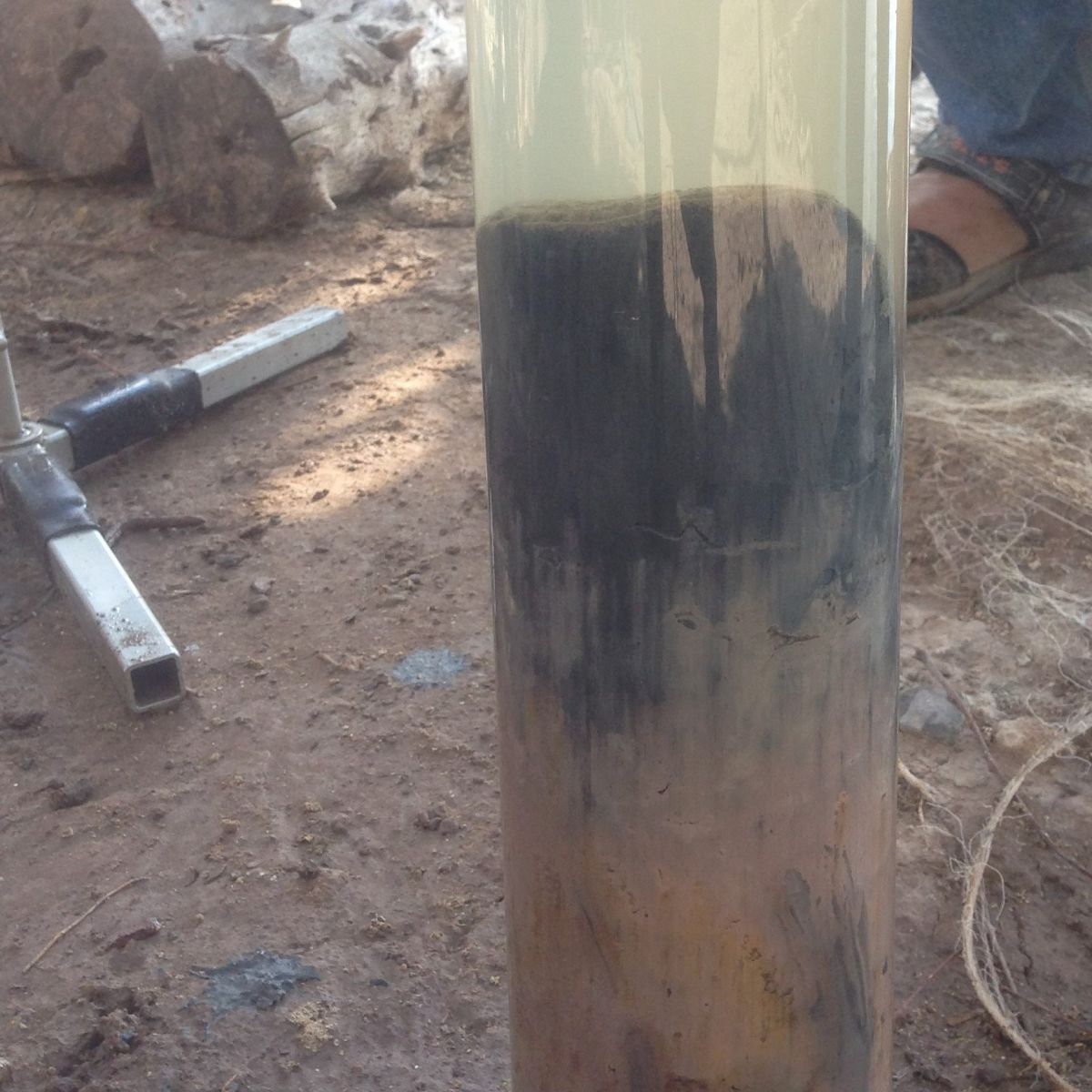Cycling rice and shrimp farming in Vietnam important for food security
A German-Vietnamese research team has used the CLS to show that cycling rice and shrimp cultivation is a viable, reversible option for rice farmers affected by climate change in Vietnam's coastal Mekong Delta.
By Victoria MartinezAlternating rice-shrimp field during rice harvest.
Scientists’ findings important for Mekong Delta farmers.
A German-Vietnamese research team has used the Canadian Light Source (CLS) at the University of Saskatchewan to show that cycling rice and shrimp cultivation is a viable, reversible option for rice farmers affected by climate change in Vietnam's coastal Mekong Delta.
The region, sometimes described as Vietnam's Rice Bowl, is facing a land-use shift from permanent rice to shrimp cultivation as increasing salt water intrusion (movement of saline water into freshwater aquifers) reaches further inland, which seriously affects rice production.
“The farmer can lose everything if they cannot grow rice anymore,” says Jens Kruse from the University Bonn, the lead author on a Science of the Total Environment paper exploring these changes in land use and its consequences regarding soil quality.

The diverse team has members from University of Bonn, United Nations University, Research Center Jülich GmbH, Helmholtz Centre for Environmental Research, University of Würzburg and TerrAquat Consultants and is part of a larger multi-disciplinary project, DeltAdapt, meant to advance more sustainable and resilient agricultural systems in Vietnam. Kruse has coordinated the project since 2014.
"The Mekong and Red River deltas are examples of such fertile but vulnerable regions where the production of rice, vegetables and aquaculture products is crucial for the livelihood of local farmers and the overall development of Vietnam," explains the DeltAdapt website.

Converting land from rice to shrimp farming requires a fair investment, and can leave small farmers in financial peril. The returns from shrimp farming can be as high as seven times those of rice alone, but the animals are more sensitive to disease, market price variations, and changing salt levels.
Kruse's team set out to understand how switching to permanent shrimp cultivation or to an alternating rice-shrimp arrangement affects the soil properties and nutrients available in a piece of land. For farmers, knowing how these land-management decisions impact their future growing options can help them manage risk.
"One of the important questions is with phosphorous and sulfur, is it still available to plants or not and in which chemical form is it accumulated," says Kruse. Plants can only use nutrients in certain forms, which may change depending on the chemistry of the soil.
The CLS offers soil scientists techniques to study the nutrient profiles of soil in detail, including the speciation or type of available nutrients. Coupled with nuclear magnetic resonance spectroscopy, the researchers could build detailed profiles of soils from permanent rice farms, alternating rice-shrimp farms and permanent shrimp farms
Their results show that shrimp farming does permanently alter the land's nutrient profile, which only gets more pronounced with more intensive shrimp farming. Although the overall nutrient profile improved due to shrimp cultivation relative to the former rice cultivation, the soil is no longer suitable for crop farming as a result of drastic salt accumulations and changes in the field topography.

Alternating rice and shrimp, however, leaves farmers with more flexibility, both to cycle between rice and shrimp in any given year and allowing farmers to return the land to permanent rice cultivation if desired.
“This can be a good opportunity for the farmer to adapt to the changing conditions in these coastal areas – they can make a bit more money but keep the land flexible,” says Kruse.
Visit the United Nations University's Insititue for Environment and Human Security blog here.
Kruse, Jens, Maximilian Koch, Chau Minh Khoi, Gianna Braun, Zita Sebesvari, and Wulf Amelung. "Land use change from permanent rice to alternating rice-shrimp or permanent shrimp in the coastal Mekong Delta, Vietnam: Changes in the nutrient status and binding forms." Science of The Total Environment 703 (2020): 134758. https://doi.org/10.1016/j.scitotenv.2019.134758.
For more information, contact:
Victoria Schramm
Communications Coordinator
Canadian Light Source
306-657-3516
victoria.schramm@lightsource.ca
